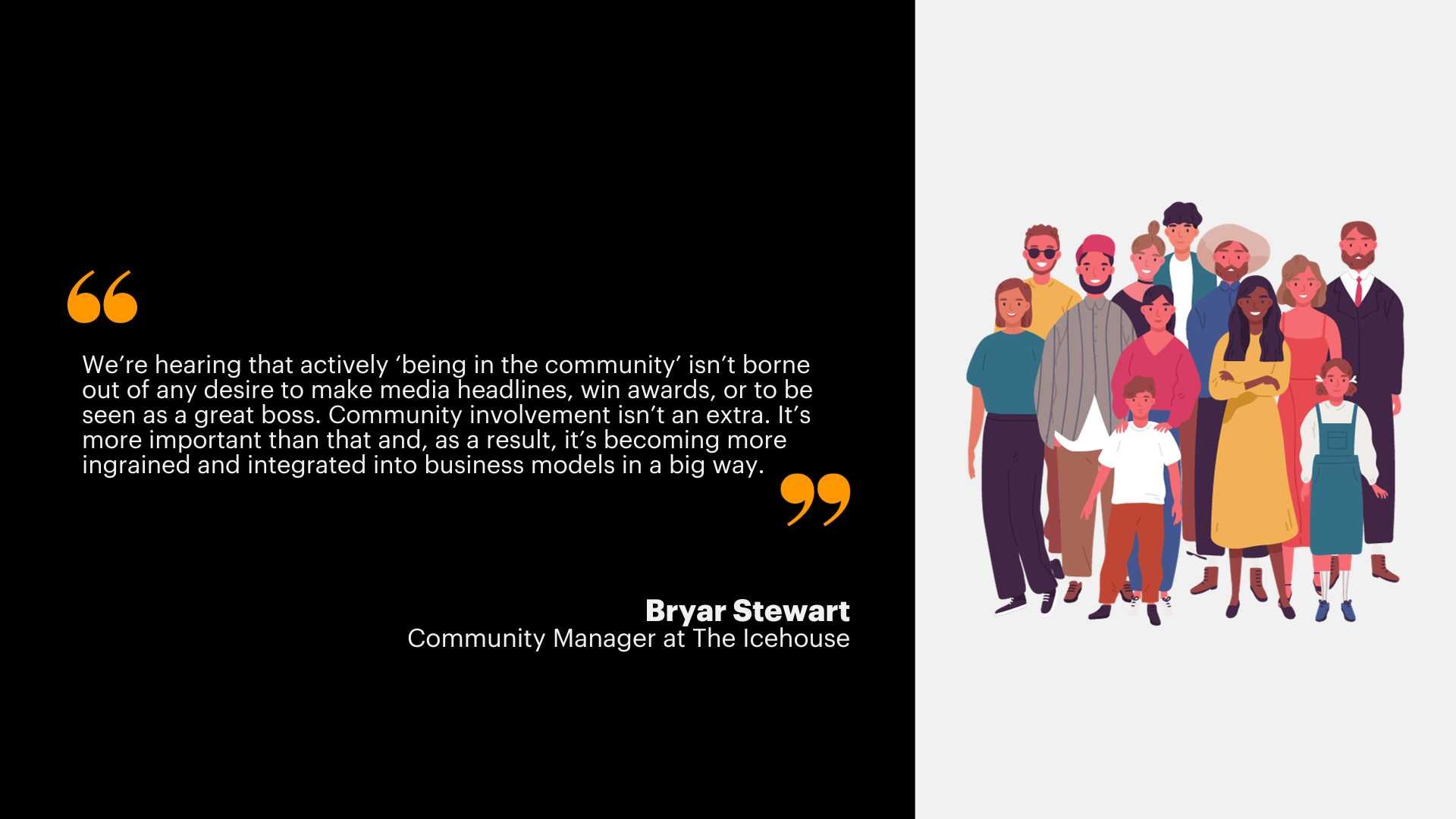Due to the events of the past three and a half years, businesses are working alongside their communities now more than ever. Moreover, it’s driving strategy.
Community engagement is not only at the forefront of operational thinking, we know from our alumni that in many instances it is shaping their purpose and their why.

Businesses are active in the community for a variety of reasons. Of course, there’s the commercial benefits, while story-telling, and good news story-telling in particular, raises brand awareness, fosters goodwill, engages customers and suppliers, and much more.
Depending on which of the latest research pieces you read, 77% of consumers buy from brands that reflect their values (Havas Media) and an extraordinary 96% of companies whose employees participate in community events are more engaged than those who don’t (Boston College Center for Corporate Citizenship’s Community Involvement 2021).
Kiwi business owners and their teams are a savvy bunch. They can spot a non-authentic community initiative or activity very easily. If you’re looking to step into your local community, take your time, do your research, speak to your customers and people, and think about what you’re passionate about. Your business doesn’t have to align with what you do. Sponsor a local junior sports teams, organise a charity event, the list is endless.
“We’re hearing that actively ‘being in the community’ isn’t borne out of any desire to make media headlines, win awards, or to be seen as a great boss. Community involvement isn’t an extra. It’s more important than that and, as a result, it’s becoming more ingrained and integrated into business models in a big way,” says Bryar Stewart, Community Manager (Growth) at The Icehouse.
An offshoot of community-based engagement is that businesses often find opportunities for collaboration and networking, potentially leading to new partnerships and growth.
“The thing that I'm most excited about is that we are about to do a sustainability programme called The Green Room, put on by Tourism Bay of Plenty, as part of a waste management trial,” says Amy Bourke, Founder, and a Financial Skills Workshop alumni.
“Tauranga City Council and Western Bay of Plenty are funding it, because we really want to be leaders in both of those spaces. We’re natural “greenies”, if you will. We've always recycled, always had food waste systems, really tried to not use suppliers and get food in from overseas and that kind of thing. [It’s about] having a more structured way and actually being able to share our story and inspire others.”
Then there are the reactive and spontaneous feel-good moments. In February 2023, following the effects of Cyclone Gabrielle, Icehouse alumni and Farrah’s founders, Jovan and Farrah Covak, ‘drove to Hawke’s Bay from Wellington overnight to donate 1800 litres of diesel, 200 litres of petrol, 1400 sausages, wraps and bottles of LPG,’ reported the NZ Herald.
Community engagement at the top end is an opportunity to give back, better the environment around you, and offer a helping hand to the next generation of Kiwi entrepreneurs. And the results are often transformative.
“I want to live in a good community and I want to live in a happy community, and I think you can contribute to that. It's sheer self-interest because it's what makes a good place,” says Pic Picot, owner and founder of Pic’s Peanut Butter and an OMP alumni.
“You need a good community to have a good life. So, anything that we can do to make community better makes a better life for ourselves and there's so much more as a business that we're able to do. There's huge benefits from having a business and using that as a basis for philanthropic sort of work.”
Pic established The Food Factory, a charitable trust, just around the corner from Pic’s’ Nelson HQ. The Food Factory is an affordable food-grade workspace and collaborative environment which develops food products and processing methods. It then puts facility users in touch with entrepreneurs, mentors and coaches to develop their ambitions further.
Impact giving, charitable partnerships, whatever the action, Bryar explains that the community space is growing daily. Our alumni are doing incredible things, you just might not always get to hear about it.
“What I love about my job at The Icehouse is that I get to sing for the unsung heroes. They're not going to publicise all the good work that they're doing, in that classic Kiwi way. I get the opportunity to promote the good that our alumni are doing and share those stories.
“What we're seeing is even when our alumni feel the pinch of rising costs, weather events, lack of staff, those big business things, it doesn't stop them from rolling up their sleeves and helping others. Our alumni are simply driven to do these things because it's the right thing to do. They’re the type of people who do the right thing, even when no one's watching.”
For information on programmes, workshops and business coaching services from The Icehouse, click here.
For more business ownership and leadership advice, check out more of our resources.
Icehouse Alumni? For exclusive content on Icehouse Central, register now.



